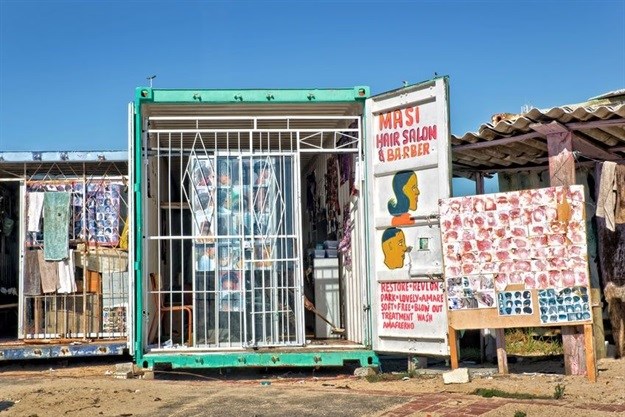
Gauteng Premier David Makhura on Monday said the illegally-run businesses are threatening local entrepreneurs.
“Another major problem facing township businesses is the mushrooming of unregulated businesses owned by foreign nationals. This is a matter we must address boldly and decisively to enforce by-laws and trading regulations,” Premier Makhura announced during his State of the Province Address, which he delivered at the Gauteng Legislature on Monday.
“Many township entrepreneurs are being squeezed out of businesses by these unlawfully operating...businesses. This year, I will [send] inspectors [to] visit townships and inner-cities to conduct inspections and shut down these illegally operating businesses.”
Spaza shops (makeshift retail spaces in residential areas) have been an area of conflict in recent years in townships, with local owners complaining that foreign nationals are infiltrating townships with shops that offer lower prices, which drives them out of business.
The township economy took centre stage in Premier Makhura’s address, where he indicated that between 2014 and 2017, public procurement spends on township enterprises increased from R600 million to R17 billion.
The number of township enterprises doing business with government has increased from 642 in 2014 to 4,182 in 2017, which according to the Premier, has helped formalise many township enterprises.
However, funding and access to markets are the two most critical barriers facing black start-ups and township enterprises.
The initiative on the township stock exchange, Premier Makhura said, is in its final stages, in partnership with the private sector.
“We have also completed a feasibility study on the establishment of a provincial State bank, which will enable us to mobilise funding for SMMEs, township enterprises, women and youth businesses as well as for infrastructure development.”
The new stock exchange aims to create economic opportunities for township-based entrepreneurs and to enable them to raise capital and grow their businesses. The initiative will cater for manufacturing and industrialised sectors, as it will also cluster all business according to common supply chain processes.
Premier Makhura said the provincial government has partnered with more than 40 corporates to help township businesses. He said this is opening new opportunities for township based businesses to participate in corporate supply chains, thus helping to transform township enterprises into more sustainable businesses, without having to rely solely on government contracts.
To date, Gauteng has 14 registered co-operative banking institutions serving over 16,000 member-owners, with over R100 million in savings and R150 million in assets.
“We are working with these institutions to ensure that they become future financial providers to township enterprises.”
In partnership with the Italian co-operative movement, Gauteng is facilitating the formation of consumer co-operatives in the wholesale and retail sector.
These cooperatives, according to Premier Makhura, will mobilise the collective buying power of 250,000 township households to purchase affordable goods at stores they own and control.
Women-led cooperatives, the majority of whom are in the townships, are also thriving and producing dignity packs and school uniforms, and have created more than 30,000 job opportunities.
Gauteng province is also working with private sector partners to unlock the potential of other sectors of the economy.
For example, the province is working with the Business Process Outsourcing (BPO) sector, which is estimated to create over 30,000 jobs in the call-centres and business support services by 2019.
In 2017 alone, this sector has already created 6,000 new jobs.
The province is also setting up joint Action Labs focusing on industries such as capital equipment and machinery, ICT, automotive, mining, food and beverages, agriculture and agro-processing.
Premier Makhura said Gauteng needs to create 5,400 jobs per day to eliminate unemployment. To halve unemployment, 2,700 jobs ought to be created per day.
In 2016 alone, the province attracted 75 Foreign Direct Investment (FDI) projects into our provincial economy, worth R36 billion. These projects have created 9,354 jobs in the economy.
From 2014-2016, the province attracted more than 200 FDI projects worth R69 billion, which created 19,000 jobs.
With regards to intra-Africa trade, as of 2017, Gauteng companies had 169 projects worth R356 billion across the continent. Intra-Africa trade generated a total of 46,732 jobs in the Gauteng economy.
SAnews.gov.za is a South African government news service, published by the Government Communication and Information System (GCIS). SAnews.gov.za (formerly BuaNews) was established to provide quick and easy access to articles and feature stories aimed at keeping the public informed about the implementation of government mandates.
Go to: http://www.sanews.gov.za